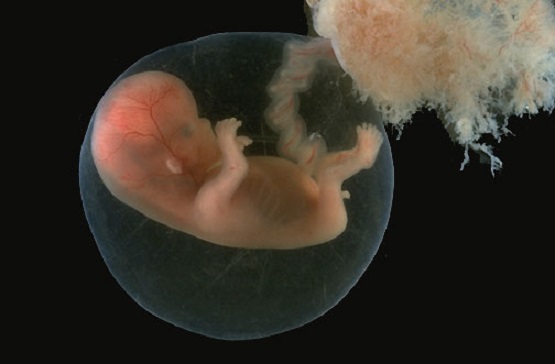Lawmakers in Pennsylvania introduced a bill Monday to protect unborn babies from abortion once their heartbeats are detectable.
The bill, sponsored by state Sen. Doug Mastriano and state Rep. Stephanie Borowicz, would prohibit abortions after an unborn baby’s heartbeat is detectable, about six weeks of pregnancy. State Senate Bill 912/House Bill 1977 would require abortion practitioners to test for a baby’s heartbeat and, if detected, prohibit the abortion unless the mother’s life is at risk.
“When you hear a baby’s heartbeat, everything changes,” Borowicz said Monday at a press conference. “If you can be declared dead when the heart stops, why not be declared alive when it starts?”
Pennsylvania joins a growing number of states considering heartbeat legislation. State lawmakers in Georgia, Kentucky, Louisiana, Mississippi, Missouri and Ohio passed similar legislation within the past year, but none currently are in effect due to legal challenges.
Borowicz said it’s time for unborn babies’ right to life to be restored, according to PennLive.
“I would love to see Roe v. Wade overturned, of course,” she said. “Sixty million babies’ lives have been lost.”
Gov. Tom Wolf, a pro-abortion Democrat with close ties to the abortion industry, said he would veto the bill, ABC 27 News reports. His spokesman slammed the legislation as a restriction on “modern women’s health care.”
During the news conference, pro-life advocate and Fox News contributor Kathy Barnette described how she could have been aborted after her mother was raped when she was only 11 years old. Instead, she was born, and she has become a strong advocate for life in America.
Keep up with the latest pro-life news and information on Twitter. Follow @LifeNewsHQ
“Lynching got nothing on Planned Parenthood,” Barnette said. “What slavery could not do in 200 years, and what Jim Crow laws could not do in 100 years, abortion and organizations like Planned Parenthood have succeeded in annihilating whole generations of black people. Liberals tell us it’s about women’s choice. No it’s about undesirable populations.”
Leading pro-life groups in Pennsylvania also voiced their support for the legislation.
“We support the Heartbeat Bill because it recognizes a simple truth: when a heartbeat is detected, the baby should be protected,” said Tom Shaheen, vice president for Pennsylvania Family Institute. “The heartbeat is a universal sign of life. We want to protect these children from the moment their heartbeat is detected.”
More than 12,000 abortions occur after nine weeks of pregnancy in Pennsylvania, according to the state Department of Health. The pro-life organization estimated that at least that many babies’ lives will be saved if the law passes and goes into effect.
Some pro-lifers have renewed hope that the new conservative-majority U.S. Supreme Court will uphold an abortion ban and overturn Roe v. Wade. Others, however, are hesitant because of concerns about losing the court battle and being forced to reimburse pro-abortion groups for their legal fees.
North Dakota and Arkansas passed heartbeat bills several years ago, but federal courts struck down both laws. In January, a judge declared an Iowa heartbeat law unconstitutional.
The Eighth Circuit Court of Appeals said the following about its ruling on the six-week abortion ban: “Because there is no genuine dispute that (North Dakota’s law) generally prohibits abortions before viability — as the Supreme Court has defined that concept — and because we are bound by Supreme Court precedent holding that states may not prohibit pre-viability abortions, we must affirm the district court’s grant of summary judgment to the plaintiffs.”
The Supreme Court took away the states’ ability to protect unborn babies from abortion under Roe v. Wade, and instead allowed abortion on demand through all nine months of pregnancy. Roe made the United States one of only seven countries in the world that allows elective abortions after 20 weeks.








